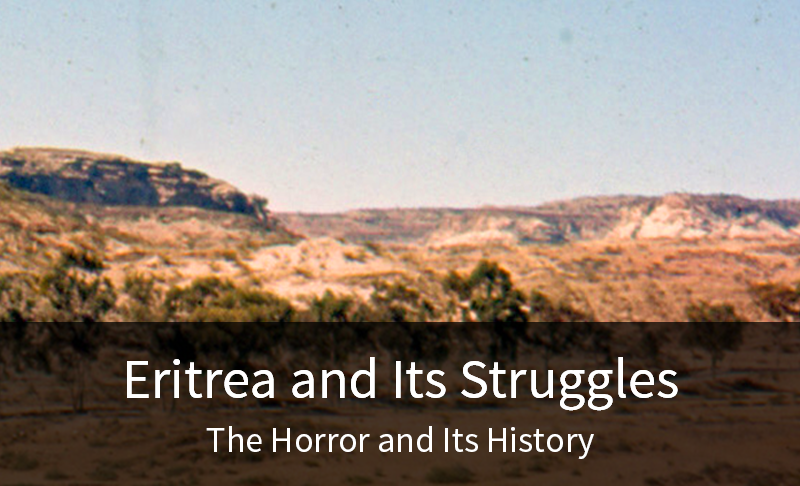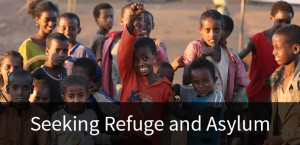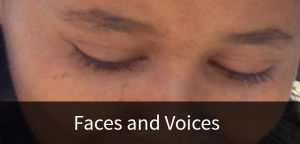Surviving in Israel
Seeking Refuge and Asylum
Surviving in Israel
Israel and African Migrants
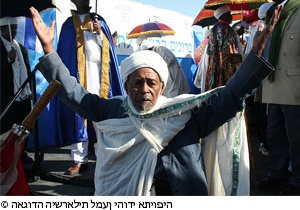 Israel’s unique geographic location — as the developed country most proximate to Eritrea and some other sub-Saharan African countries — caused many Africans, primarily Eritreans and Sudanese, to migrate there since the mid-2000s. But Israel’s reception of those migrants — many of them refugees and asylum seekers — deteriorated in more recent years. While Israel has long been host to a considerable population of Ethiopian Jews that Israel affirmatively sought to and did bring into the country as citizens, the current status of the Eritrean, Sudanese and other sub-Saharan Africans came to be more fraught, and complex. In Israel, Eritreans have benefited from a robust civil society and human rights community, an independent and at least partially sympathetic Supreme Court, and an official governmental position that they may not be refouled (deported) back to Eritrea. But at the same time they became subjected to detention, restrictions on employment, and hostility on the part of both the current government and certain pockets of the Israeli population. They also became the targets of concerted governmental undertakings to effectively expel them. The large numbers of Eritreans living in Israel, combined with the difficulty of their lives there and the broad accessibility of information within that generally open society, have together given rise to the detailed discussion below.
Israel’s unique geographic location — as the developed country most proximate to Eritrea and some other sub-Saharan African countries — caused many Africans, primarily Eritreans and Sudanese, to migrate there since the mid-2000s. But Israel’s reception of those migrants — many of them refugees and asylum seekers — deteriorated in more recent years. While Israel has long been host to a considerable population of Ethiopian Jews that Israel affirmatively sought to and did bring into the country as citizens, the current status of the Eritrean, Sudanese and other sub-Saharan Africans came to be more fraught, and complex. In Israel, Eritreans have benefited from a robust civil society and human rights community, an independent and at least partially sympathetic Supreme Court, and an official governmental position that they may not be refouled (deported) back to Eritrea. But at the same time they became subjected to detention, restrictions on employment, and hostility on the part of both the current government and certain pockets of the Israeli population. They also became the targets of concerted governmental undertakings to effectively expel them. The large numbers of Eritreans living in Israel, combined with the difficulty of their lives there and the broad accessibility of information within that generally open society, have together given rise to the detailed discussion below.
Seeking Refuge and Asylum
A Wisp of Welcome
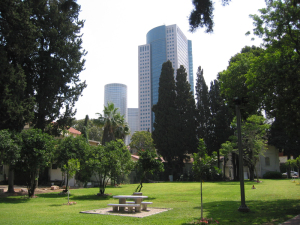 Israel’s position in the region has led to this irony: many Arab and Muslim states having wished that it weren’t there, and many sub-Saharan overland migrants having been grateful that it is. During the mid-2000s, Eritreans, Sudanese and other sub-Saharan Africans began seeking a safe haven in Israel, where they could escape their governments’ abuses, earn bare but sustainable incomes, and share those incomes by way of remittances sent to relatives back home. Some were purely economic migrants, while others were truly refugees who feared persecution and harm in their native lands, including – in the case of Eritrea – the prospect of indefinite military service in slave-like conditions. The Eritreans would pay smugglers to secret them across Sudan and Sinai and from there into Israel, and the Israeli government and population tolerated the in-flow. Even without formal work permits, they found employment in restaurants, hotels and construction crews. They learned Hebrew and English, and led generally quiet lives. Israel became a destination of choice for many Eritrean migrants and refugees. They enjoyed no legal rights there, and received almost no social or medical services from the Israeli government, but they could live with basic security and a wisp of hope for the future.
Israel’s position in the region has led to this irony: many Arab and Muslim states having wished that it weren’t there, and many sub-Saharan overland migrants having been grateful that it is. During the mid-2000s, Eritreans, Sudanese and other sub-Saharan Africans began seeking a safe haven in Israel, where they could escape their governments’ abuses, earn bare but sustainable incomes, and share those incomes by way of remittances sent to relatives back home. Some were purely economic migrants, while others were truly refugees who feared persecution and harm in their native lands, including – in the case of Eritrea – the prospect of indefinite military service in slave-like conditions. The Eritreans would pay smugglers to secret them across Sudan and Sinai and from there into Israel, and the Israeli government and population tolerated the in-flow. Even without formal work permits, they found employment in restaurants, hotels and construction crews. They learned Hebrew and English, and led generally quiet lives. Israel became a destination of choice for many Eritrean migrants and refugees. They enjoyed no legal rights there, and received almost no social or medical services from the Israeli government, but they could live with basic security and a wisp of hope for the future.
The Welcome Collapses
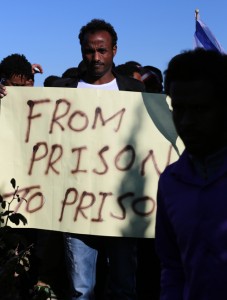 By the late 2000s, the numbers of undocumented sub-Saharan Africans in Israel had swelled. Eventually around 64,000 undocumented Africans had come into the small country — approximately 34,000 of whom were Eritrean. Thousands of the Eritreans residing in Israel had been tortured by traffickers in Sinai, so they might have been greeted with sympathy. But a tipping point had been reached. A xenophobic backlash seized many Israelis in poor and working class South Tel Aviv where the Africans had established their neighborhood. By early 2011 the backlash was full blown; leading right-wing Israeli politicians fanned the flames; some street violence against the African migrants and refugees occurred; and some Israelis came to fear the dilution of their country’s Jewish demographic. The Netanyahu government responded by vowing to expel most or all of the so-called African “infiltrators,” asserting that few were actual refugees and that almost all were mere economic migrants. It built a fence separating Sinai from Israel to prevent further in-migration. It restricted the right to work for many Africans who were already in-country. The government also impeded procedures for granting refugee or asylee status to those Africans who deserved that protection under international law: by clogging Israel’s procedures for granting refugee or asylee status to the point of near-paralysis; by maintaining in particular that the avoidance of military service in Eritrea was not grounds for refugee or asylee status; and by frustrating Africans from even applying for refugee or asylee status by limiting their access to refugee offices and providing the application form to them only in English. (The America Team has since translated that form into Tigrinya, the dominant Eritrean language – click here for the translation – and that translation has been distributed to Eritreans by Israeli NGOs.) The government acknowledged that it could not and would not under international humanitarian and legal standards deport the Eritreans to Eritrea, where many or most would face likely torture or death – so its plans and intentions for expulsion were and long remained unclear. The heavy impediments to asylee status, however, have remained to this day, as documented in a 2022 study by human rights NGOs.
By the late 2000s, the numbers of undocumented sub-Saharan Africans in Israel had swelled. Eventually around 64,000 undocumented Africans had come into the small country — approximately 34,000 of whom were Eritrean. Thousands of the Eritreans residing in Israel had been tortured by traffickers in Sinai, so they might have been greeted with sympathy. But a tipping point had been reached. A xenophobic backlash seized many Israelis in poor and working class South Tel Aviv where the Africans had established their neighborhood. By early 2011 the backlash was full blown; leading right-wing Israeli politicians fanned the flames; some street violence against the African migrants and refugees occurred; and some Israelis came to fear the dilution of their country’s Jewish demographic. The Netanyahu government responded by vowing to expel most or all of the so-called African “infiltrators,” asserting that few were actual refugees and that almost all were mere economic migrants. It built a fence separating Sinai from Israel to prevent further in-migration. It restricted the right to work for many Africans who were already in-country. The government also impeded procedures for granting refugee or asylee status to those Africans who deserved that protection under international law: by clogging Israel’s procedures for granting refugee or asylee status to the point of near-paralysis; by maintaining in particular that the avoidance of military service in Eritrea was not grounds for refugee or asylee status; and by frustrating Africans from even applying for refugee or asylee status by limiting their access to refugee offices and providing the application form to them only in English. (The America Team has since translated that form into Tigrinya, the dominant Eritrean language – click here for the translation – and that translation has been distributed to Eritreans by Israeli NGOs.) The government acknowledged that it could not and would not under international humanitarian and legal standards deport the Eritreans to Eritrea, where many or most would face likely torture or death – so its plans and intentions for expulsion were and long remained unclear. The heavy impediments to asylee status, however, have remained to this day, as documented in a 2022 study by human rights NGOs.
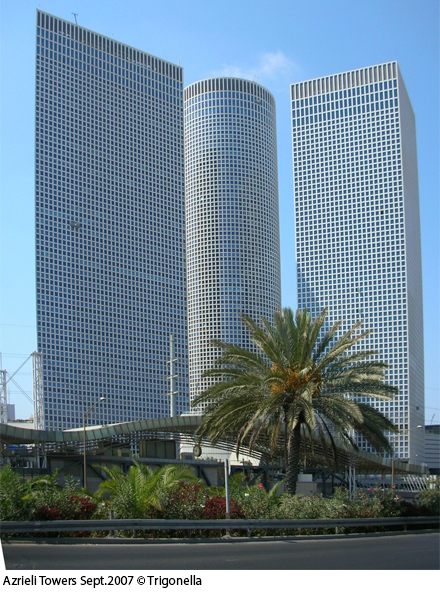
New Detention Laws
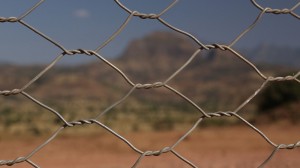 In 2012 the Israeli Knesset (parliament) passed a law decreeing indefinite terms in a secure desert prison, known as Saharonim, for undocumented African migrants – although there was no way, and no will, to house all of them there. The following year the Israeli Supreme Court struck down the law as contrary to humanitarian standards; but the Knesset quickly passed a new law, providing for indefinite detention in a second, looser detention facility in the desert, known as Holot — and desert detentions increased. The threat of imprisonment as an alternative to voluntary emigration came to be viewed by human rights observers as tantamount to forcible deportation (and in fact, many Africans appear to have thus been forced out of the country). But again the law did not pose a practical plan for the detention or expulsion of all of the African migrants and refugees; and again the law was challenged by human rights advocates. A series of non-violent protests by Africans and sympathetic Israelis ensued, and in September 2014 the Supreme Court ordered that the new prison be closed and that all mandatory detention cease.
In 2012 the Israeli Knesset (parliament) passed a law decreeing indefinite terms in a secure desert prison, known as Saharonim, for undocumented African migrants – although there was no way, and no will, to house all of them there. The following year the Israeli Supreme Court struck down the law as contrary to humanitarian standards; but the Knesset quickly passed a new law, providing for indefinite detention in a second, looser detention facility in the desert, known as Holot — and desert detentions increased. The threat of imprisonment as an alternative to voluntary emigration came to be viewed by human rights observers as tantamount to forcible deportation (and in fact, many Africans appear to have thus been forced out of the country). But again the law did not pose a practical plan for the detention or expulsion of all of the African migrants and refugees; and again the law was challenged by human rights advocates. A series of non-violent protests by Africans and sympathetic Israelis ensued, and in September 2014 the Supreme Court ordered that the new prison be closed and that all mandatory detention cease.
In December 2014 the Knesset passed yet another version of the law — relaxing the detention provisions somewhat, but imposing other new penalties on migrants and their employers; and that law too was promptly challenged in court by human rights NGOs. In the spring of 2015 the government issued a new ultimatum, that any African imprisoned in Holot with no asylum claim would have to either migrate or face indefinite imprisonment in the more restrictive Saharonim facility. But in August 2015 the Supreme Court ruled that imprisonment in Holot could not last for extended periods; that those now held over a year must be promptly released; and that the government must cease efforts to break the spirit of asylum seekers so as to coerce them to leave Israel. The court also criticized the government for its slow pace in examining asylum claims, and for the low recognition rate of refugees in Israel.
In February 2016 the Knesset reduced the detention period in Holot to a maximum of 12 months, consistent with the court ruling. But the government did not otherwise appear to have complied with the court’s order and critique. Indeed, through the beginning of 2018 the government would continue at a brisk pace to induce Eritreans who refused to return to Eritrea to emigrate to Rwanda or Uganda, under secret agreements with those two countries, pursuant to both a carrot (false promises of welcome and work there) and a stick (the threat of indefinite imprisonment in Saharonim for those who had refused to emigrate and who had not formally applied for asylum or whose asylum claims had been denied — in other words, almost all of the Africans in-country). The hardship for Eritreans, a choice between an Israeli prison and a strange environment in Central Africa with which they had no connection, was apparent. For those who arrived in Rwanda, many or most were being expelled by the Rwandan government to Uganda or otherwise leaving for Uganda due to the impossibility of life in Rwanda. In Uganda they again were unwelcome, their lives were often physically insecure, many were finding work difficult to obtain, and they sometimes fled onward toward Europe. Tragically, some of those in flight who had been forced out of Israel were killed by ISIS in Libya or drowned in the Mediterranean.
In May 2017, the government began enforcing a new “Deposit Law” that required employers of African migrants to withhold and remit to the state 20% of their wages until they would leave the country — thus further impoverishing them and pressuring them to leave. Employers were also required to deposit their own money, in an amount equal to 16% of the Africans’ wages, into a fund that would be forfeited if the Africans failed to timely leave the country — thus chilling their employability.
The late summer and fall of 2017 brought several further developments. First, the Supreme Court ruled that the government could press Africans to leave the country but could not detain them indefinitely for refusing to leave; that is, it could neither remove them involuntarily nor punish them forever if they refused to be pressured. Specifically, those who balked at going to Rwanda or Uganda could now be detained no more than 12 months in Holot (the open prison) and two more months in Saharonim (the closed prison). In the course of the proceedings, for the first time the government publicly acknowledged that Rwanda and Uganda were the destinations of those pressed to leave; and several justices observed that those countries were not — but should be — abiding by the secret agreements with the Israeli government to protect the new arrivals. In response to the decision, which represented the fourth instance in which the court had at least partially overruled the government relative to its treatment of African migrants, the government promptly vowed to outflank the court legislatively. Meanwhile in late October 2017, the government claimed to have amended its agreement with Rwanda such that Rwanda would now for the first time accept Africans that the Israeli government had removed involuntarily, thus potentially undercutting the Supreme Court’s decision — by international treaty.
Second, the Supreme Court ruled that the government could charge private employers 20% of the wages they pay to African asylum seekers, so as to deter their employment in favor of Israelis and so as to encourage them to leave the country. (The employers had already had to pay the 20% tax on the wages of other migrant workers.) The 20% obligation was in addition to the 16% employer-paid portion of the “deposit” noted above. Third, the court ruled that government ministries and local governmental units could not employ African migrants — many of whom had been working there in the cleaning and maintenance field. The rulings were expected to result in the loss of employment for up to several thousand Africans in-country. So within a period of weeks, Eritreans in Israel had experienced one important step forward, and several steps back.
The January 2018 Order
In early January 2018, following a vote of the Knesset, the government announced that it would close Holot and indefinitely detain in Saharonim any of the remaining 38,000 Africans – including some 27,000 Eritreans – who would refuse to accept $3500 and go to Rwanda or Uganda. The dramatic announcement appeared to cap and conclude several years of determined skirmishing between the government, on the one hand, and the migrants, the Supreme Court and the NGOs, on the other, with the government theretofore largely prevailing. Forced removals of refugees to third countries with which they had had no connection were rare or unprecedented among Western-type countries in recent decades; and when the expulsion plan had first been aired the previous November, the Office of the United Nations High Commissioner for Refugees had expressed concern. Progressive American Jewish organizations had likewise objected, but to no avail. When the final announcement of the legislation eventuated in January, it drew negative worldwide press coverage, more pointed criticism on the part of UNHCR, and extensive protests on the part of Israelis sympathetic to the Africans — including writers, doctors, airline pilots, rabbis and Holocaust survivors, among many others. American Jewish clergy protested in greater force as well.
But as ever, the immediate impact of the new law was ambiguous. First, it violated the previous Supreme Court ruling that migrants not be detained indefinitely, and thus it quickly drew a legal challenge. Second, the law contained a number of exemptions, including for women, children, male parents, and victims of slavery or trafficking. Third, the governments of Rwanda and Uganda – now finding themselves in the international spotlight on the issue – denied the existence of any such arrangements between Israel and themselves. Fourth, the law provided that the detentions would not begin for 90 days, raising the possibility that additional circumstances could intervene. Indeed, it again became apparent that there was insufficient prison space to house large numbers of Africans who refused deportation; and the government announced that it would only deport 600 Africans per month.
Reports of the first long-term detentions in Saharonim under the new law nevertheless appeared on February 21. But on March 15 the Supreme Court issued a temporary restraining order staying the removals. On March 22 — on the strength of a significant February ruling by the justice ministry’s immigration court that fleeing Eritrea’s harsh military service could be grounds for asylum — the deputy attorney general ordered a review of denied asylum cases on those grounds. And on March 30, Nancy Pelosi, the then minority (Democratic) leader of the U.S. House of Representatives, while on Israeli soil, took the remarkable measure of delivering a letter to the Israeli government calling for the release of those Africans detained in Saharonim. So despite the dramatic and disturbing deportation announcement, the matter had seemingly not come to rest; and the broad protest movement continued to build.
The Passover Reprieve
On April 2, 2018, in the middle of Passover — the holiday celebrating the Jewish people’s ancient emancipation and exodus from Egypt, and the worldwide Jewish community’s most powerful metaphor for political freedom — the Israeli government announced that it had struck an agreement with the office of the United Nations High Commissioner for Refugees: that over the coming years Israel would absorb half of its African migrants, and UNHCR would place the other half in Western countries. All attempts at deportation would immediately cease, and the detention centers in Israel would close. The development was cautiously celebrated by advocates in both Israel and the U.S. But how it would play out in practice remained to be seen. In fact, within hours, Israeli prime minister Benjamin Netanyahu suspended the agreement.
On April 23, some 18 (that is, almost all) Jewish members of the U.S. House of Representatives wrote to the prime minister, asking him to restore his agreement with UNHCR. On April 24, after concerted but unsuccessful negotiations with Rwanda and Uganda over the prior weeks for those countries to accept Africans who stood to be forcibly removed by Israel, the government announced that it would abandon its efforts to remove the migrants involuntarily to any third countries. At the same time, however, it vowed to find means to remove the migrants “voluntarily,” including by bypassing the rulings of the Supreme Court — a promise that The Washington Post said threatened a pillar of Israeli democracy. And in July 2018, the Knesset passed the controversial Nation-State Law, formally expanding the characterization of Israel as a home for Jewish people — a measure with potentially negative impact for all of Israel’s non-Jewish population.
Meanwhile, expressing the opposite sentiment, a number of Israel’s kibbutzim (collective farms) welcomed several dozen African asylum seeking families to live and work there.
2019
As of May 2019, some 23,600 Eritreans remained in Israel, having resisted “voluntary” removal. Extra-judicial detention of Africans at Holot had ended. Approximately $200 million in Africans’ escrowed wages under the 20% deposit law was reported to have disappeared. As of November 2019, there had been no overall change in the status of Eritreans in Israel or the deposit law, and the Israeli government was still encouraging the Eritreans’ “voluntary” departure.
2020
In April 2020, in a development that pro-asylum activists considered highly significant, the Israeli Supreme Court overturned the country’s notorious Deposit Law, pursuant to which employers had been required to withhold 20% of African asylum seekers’ wages and to release those amounts to them only if and when they would emigrate. The court also ordered that wages withheld to date be promptly released to those who had earned them; and by May those releases were occurring. Anti-immigrant members of the Knesset, nevertheless, promptly threatened to vote to override the court’s ruling by way of legislation — something that is theoretically possible under Israeli law but that had never before been done.
The ruling came amidst the coronavirus pandemic and lock-down, when asylum seekers in Israel were experiencing widespread unemployment, with little recourse to a social safety net.
2023
In November 2022, a political development in Israel shook the country. For the first time in history, a far right coalition was elected to the Knesset and proceeded to form a government. As that government rolled out its plans in 2023 — to neuter the Supreme Court, strip rights from Palestinians, force Palestinians from their lands, and many other controversial measures — hundreds of thousands of Israelis, fearing the end of Israeli democracy, took to the streets in a continuing series of protests. The welfare of the African asylum seekers also became imperiled, with wage withholding, detention and deportation on the new government’s agenda. It was the starkest moment for them in years.
But all of that dynamic was overtaken by a new national unity – including a limited unity government – the arose immediately after the unprecedently deadly October 7 attack by Hamas forces from Gaza on Israeli civilians and troops living or stationed near the Gaza border. Over 1400 Israelis died, causing commentators to refer to the event as Israeli’s September 11, and the worst atrocity committed against Jews since the Holocaust. The far-right government was widely blamed both for having inflamed Arab resistance and for having been unprepared to protect the border’s security. The government’s days seemed numbered. Meanwhile, Eritrean asylum seekers clad in uniform blue shirts were photographed helping Israeli Jews with relief efforts.
That September, Tel Aviv had been the scene of a major riot at a festival for expat Eritreans organized by the Eritrean embassy, in which scores, including many members of the police force, were injured. Similar riots had occurred at embassy-organized festivals across Western cities in 2022 and 2023. (See in this website “Eritrea and Its Struggles: The Repression Avalanches: Expat Festivals in the West.”)
By the autumn of 2023, fewer than 18,000 Eritreans remained in Israel.
2024-2025
In 2024, a district court in Jerusalem ruled that Eritreans who had fled military conscription in their home country merit refugee status in Israel. That ruling had seemed promising at the time; but grants of refugee or asylum status through mid-2025 had not materially increased.
The year 2024 also saw a number of street fights between Eritrean loyalists and Eritrean oppositionists that were not specifically linked to regime-sponsored events. That is, the hostilities had come to reflect a more general and overt antagonism between the two communities. An oppositionist was sentenced to prison for his role in one of those altercations. But the court ruling wasn’t obviously partisan; the Israeli government and courts reportedly make little distinction between oppositionists and loyalists in asylum and criminal matters generally; indeed, the violent episodes generated new calls by right-wing politicians to expel all Eritreans. Nevertheless, no new expulsion efforts eventuated — the continuing war in Gaza, and the extraordinary levels of international criticism of Israel’s conduct in that war, may have drawn away energy from any expulsion initiatives.
In Summary
Through all of this, most Eritrean and other African migrants, refugees and asylum seekers who had remained in Israel had been able to continue living and working without detention, although beset with hostility, privation, economic insecurity, and grave uncertainty as to their futures. Meanwhile some tens of thousands had been forced out, and many thousands more now stood to be. So here, as in many areas of life and law in Israel, a struggle had continued — between a vision of liberal and pluralistic democracy and a vision of military, religious and cultural self-defense.
The Israeli Challenge
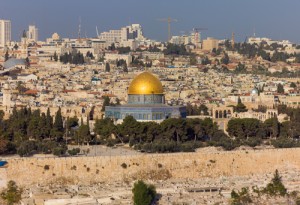 The Israeli populace was and remains divided about the Africans in their midst. Long a robust democracy– and hopefully one for the long term — Israel is home to a vocal human rights community, and (as noted above) that community, including the Hotline for Refugees and Migrants, has advocated fiercely for the rights of the Africans generally and the refugees and asylum seekers in particular. (In February 2016, Hotline published a report on detention conditions, which can be viewed HERE.) HIAS, the highly respected American Jewish refugee agency, has also been a vocal advocate for the humane treatment of the Africans. But by far, most Israelis (and other Jewish communities around the world) remained less absorbed by the African migrant, refugee and asylum issues and more absorbed by what they viewed as Israel’s struggle for its continued existence as against those who have vowed to destroy it – well-armed, radical Islamists such as Hamas in Gaza, Hezbollah in Lebanon, and Iran with its developing nuclear capability.
The Israeli populace was and remains divided about the Africans in their midst. Long a robust democracy– and hopefully one for the long term — Israel is home to a vocal human rights community, and (as noted above) that community, including the Hotline for Refugees and Migrants, has advocated fiercely for the rights of the Africans generally and the refugees and asylum seekers in particular. (In February 2016, Hotline published a report on detention conditions, which can be viewed HERE.) HIAS, the highly respected American Jewish refugee agency, has also been a vocal advocate for the humane treatment of the Africans. But by far, most Israelis (and other Jewish communities around the world) remained less absorbed by the African migrant, refugee and asylum issues and more absorbed by what they viewed as Israel’s struggle for its continued existence as against those who have vowed to destroy it – well-armed, radical Islamists such as Hamas in Gaza, Hezbollah in Lebanon, and Iran with its developing nuclear capability.
In Israel as a venue for African refugees and asylum seekers, painful ironies and conundrums have abounded. Israel had been established in 1948, with the resounding blessing of the United Nations, as a homeland for Jewish refugees who had historically been unwelcome in Europe and had been nearly decimated there in the Holocaust. At that time, except for objections by Arab and a few other states, Israel’s creation was widely considered to be one of the great human rights triumphs in recent times, almost as significant as the creation of the United Nations itself. As the African migrants and their Jewish supporters today are quick to advance, that history should logically drive an empathy within Israel on behalf of other refugees and asylum seekers. Conversely, however, because Israel’s establishment was conceived and internationally blessed as a specifically Jewish homeland — offering a haven to Jews who might be unwelcome elsewhere — its very identity as a nation was and continues to be predicated on a distinct religious and ethnic exclusivism; and it is this argument (and emotion) that the Africans’ antagonists in Israel express.
Israel is not the only developed country where migrants, refugees and asylum seekers from Africa or other places in the developing world have faced governmental and popular hostility. Certainly, as a general matter most sovereign countries in modern times have always restricted the influx of migrants and refugees. But increasingly, in recent years, more prosperous countries that had once welcomed limited numbers of foreigners from poorer countries are finding it difficult to accommodate the many now seeking to migrate, are finding many of their citizens to resent migrants, or both. Various countries in Europe, for example, have struggled practically, economically, morally and politically with the recent, massive influx of migrants and refugees from Syria, Eritrea, Afghanistan, Iraq, West Africa, Ukraine and elsewhere. Like Israel, some other more developed countries have arbitrarily imprisoned some refugees and asylum seekers, or have denied them social benefits and employment opportunities. Like Israel, at times some developed countries (including the United States) have threatened arbitrary and prolonged detention in lieu of voluntary emigration. Like Israel, some or most have avoided their asylum obligations by physically restricting access across their borders. Some (including the U.S.) have forcibly returned refugees and asylum seekers at their peril to their countries of origin or countries through which they have passed. To be sure, virulent anti-immigrant political parties are flourishing across the developed world.
Additional arguments could be made to fault Israel less rather than more. For example, among countries with large numbers of refugees and asylum seekers who have flooded their borders from adjacent trouble spots, many — unlike Israel — require the refugees and asylum seekers to remain in closed camps with no opportunity for integration or self-reliance. Also, in contrast to what occurs in some other countries in the region, torture and murder don’t befall the sub-Saharans in Israel. Finally, Israel’s restrictions on work visas and immigration for non-Jews have extended not just to African Gentiles, but to many other Gentiles (including high tech investors and workers from Europe). And as the Israeli government has been quick to point out, it has expelled Ukrainian and Georgian migrants in recent years as well.
But at bottom, the treatment of Eritreans in Israel is highly problematic. In particular, because the number of Eritrean migrants and asylum seekers in Israel had become so substantial, because that number had generated considerable hostility among some Israelis, because the government had long denied a path to lawful refugee status, and because asylum seekers were being imprisoned and forced out of the country to inhospitable locales, their condition and that of other sub-Saharan Africans in Israel became of special concern to The America Team. Between 2018 and 2022, that condition improved somewhat: Eritreans became better accepted on the streets of Tel Aviv; young Eritreans were receiving good public educations; fewer Eritreans remained utterly impoverished; slightly more health and social services had become available to them; and the large scale detentions and forced emigration had become things of the past. But we are still concerned. Social services are still scant, many Eritreans subsist in overcrowded apartments, they are barred from many professions, university educations are unaffordable, heavy taxes are imposed on their wages, most are prohibited from holding driver’s licenses, and xenophobic demagoguery persists. We believe that Eritrean and other African migrants in Israel should be afforded the same opportunity to seek and receive asylum, under fair standards and procedures, as they have received in other developed democracies; and we have called upon the Israeli government to effect that. Above all, we maintain hope that the Eritreans in Israel will be able to live and to work in a place of tolerance and opportunity. That would stand as a bright example of what grass roots, pro-refugee advocacy — and the Israeli people — are able to achieve.

